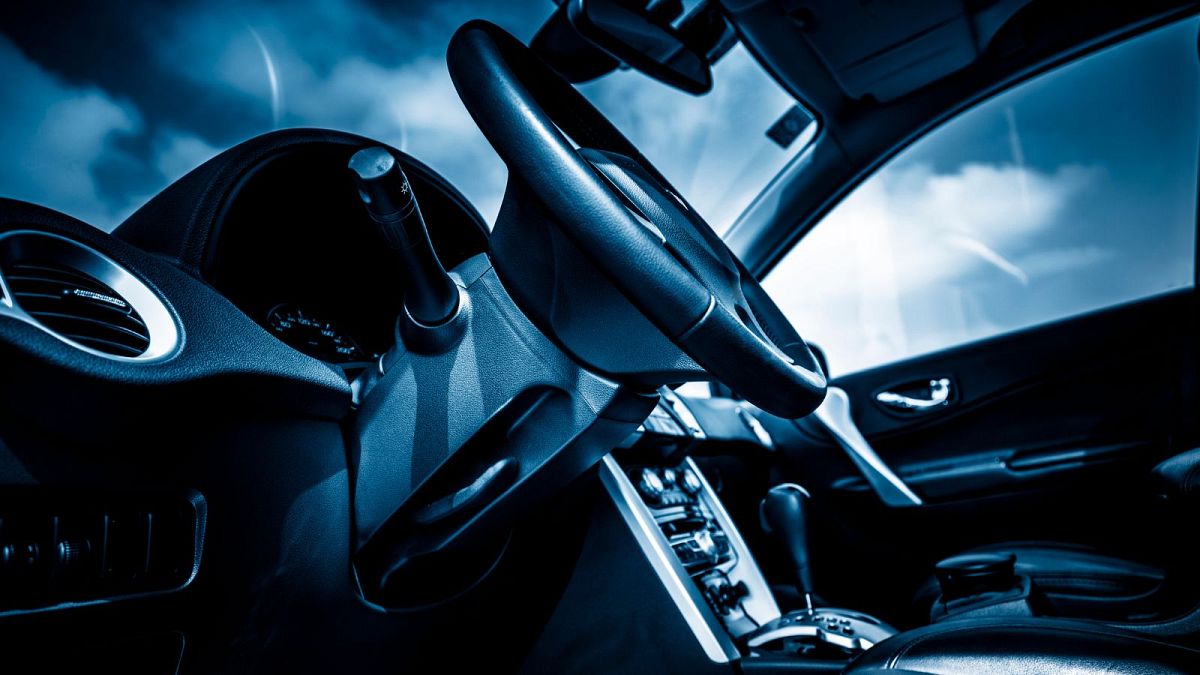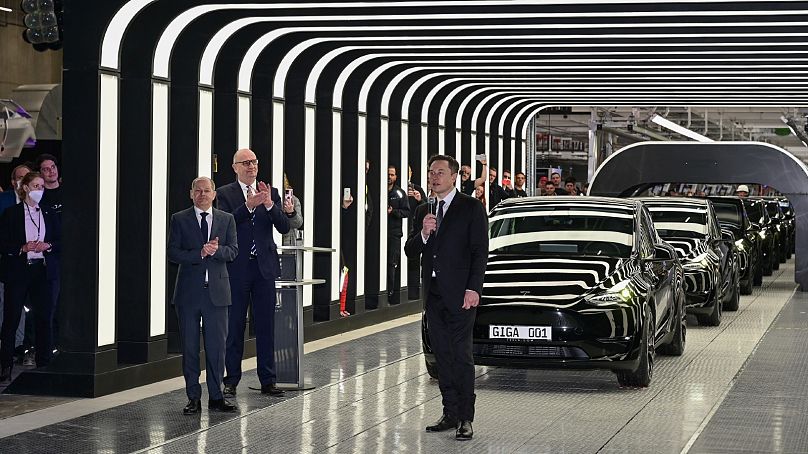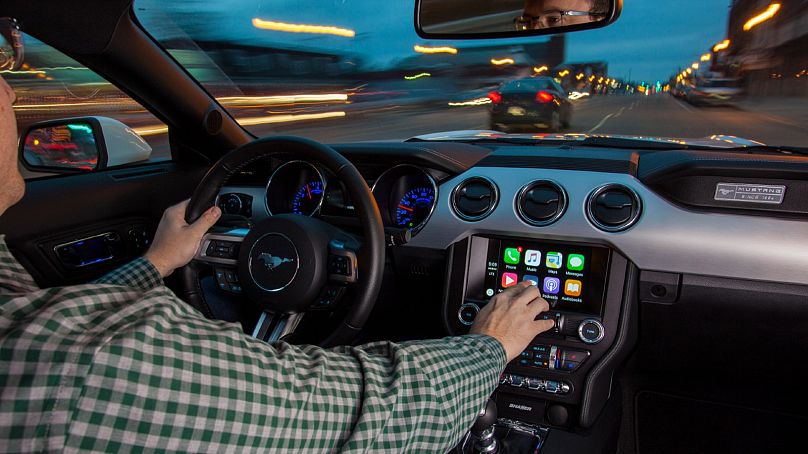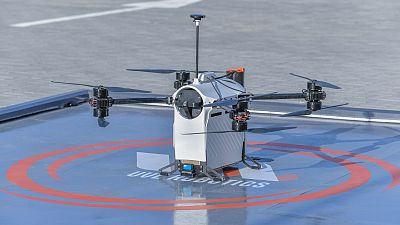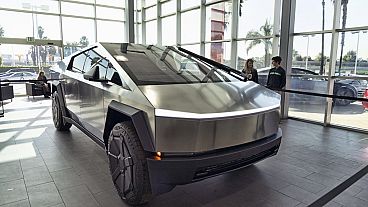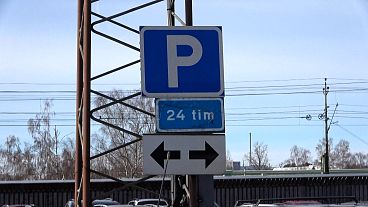Car buyers will increasingly be faced with subscription models for things like heated seats and driving assistance technologies.
As consumers, we’re used to paying a subscription for all sorts of things. Data plans for our mobile phones, monthly fees to stream music and TV shows – and now, subscriptions to unlock features for our car?
It might seem counterintuitive, but automakers have been increasingly paywalling features and services for their vehicles, including some features that are physically built into the car.
BMW made headlines this week after several news outlets spotted that it was selling subscriptions for heated seats in its vehicles for some countries, including in the UK, where the service starts at £15 (€17.70) a month.
Such moves have been called out as greedy and exploitative by some. But the industry for its part has had to tackle challenges including supply chain bottlenecks and shortages amid the war in Ukraine and the ongoing COVID-19 pandemic.
In fact, this push by automakers towards subscription models and paywalled features has been in the making for the last few years, according to Matthias Schmidt, a European automotive industry market analyst.
“It makes complete sense, because the business model is changing in the automotive world,” he told Euronews Next.
“So before that, the main profit area was when the vehicle was driven off the factory and delivered to the customer,” he said. “And what's changing now is the vehicle is turning into a profit centre over its life cycle”.
Pay extra to unlock features and services
BMW may have captured headlines for its heated seats subscription, but the car manufacturer also offers a whole host of other pay-to-use features.
For example in the French BMW ConnectedDrive Store, you can add a heated steering wheel feature for €15 for one month (€110 for one year, €160 for three years, €240 unlimited).
And starting at €10 for one month, you can also add a feature that automatically switches your high beams on and off when there is oncoming traffic or a vehicle in front of you.
"The ConnectedDrive Store offers customers the opportunity to add selected features, which they did not order when the vehicle was built, at a later date. This can be helpful for new customers should their circumstances change after their purchase," a BMW spokeswoman told Euronews Next.
"For secondary owners, this functionality is particularly useful, as they now have the opportunity to add features the original owner did not choose," she said, adding that such subscriptions also allowed drivers to "experiment" with certain features before committing to a full purchase with a one-time payment.
It’s not just BMW offering paywalled extras - other manufacturers like Volkswagen, Audi, Toyota and Tesla have tried out subscriptions for certain features and services on demand.
The Drive reported last year that Toyota was locking its key fob remote start function behind a monthly subscription, meaning that the proximity remote start function on the fob would not work for owners of certain models unless they were enrolled in a larger connected services plan.
The news outlet subsequently reported that Toyota claimed it never intended to market the key fob remote start as a real feature, and that it was reviewing the subscription requirement.
Troubled automotive market
Amid supply chain disruption, geopolitical tension and the transition towards green mobility, manufacturers are trying to work out how to preserve their profit margins, Schmidt said.
Auto industry consultants JD Power and LMC Automotive earlier this year further cut their global light vehicle sales forecast for 2022, as lockdowns in China and the war in Ukraine hurt production.
In addition, traditional car manufacturers are having to contend with the transition towards electric vehicles, particularly in regions like Europe, where lawmakers have endorsed a ban on new petrol and diesel cars from 2035.
Vehicles, meanwhile, are increasingly able to accommodate new electronic features as they are connected to the internet, making it an easy option to send updates and unlock features over the air.
Any colour, as long as it’s black or white?
Some automakers are having to rethink not just the inside of the car but the exterior itself amid ongoing global supply chain disruption.
For example, Renault and Tesla are said to be limiting their choice of colours to speed up delivery.
Tesla's Berlin factory is only building the Model Y in black or white, Automotive News reported, adding that red, blue or silver vehicles will be supplied from the automaker’s Shanghai factory.
Customers who choose black or white can expect their cars in October, it added, but those who opt for the other colours will not receive their cars until March 2023 at the earliest.
Tesla did not immediately respond to Euronews Next’s request for comment.
For its part, Renault is offering pared-back options for buyers of its Arkana SUVs: black, white, or grey.
Its "Fast track" offer on the Arkana, already being delivered in France, guarantees a new car in a maximum of 30 days - compared with an average wait of five months.
The cars come in only three colours, versus the usual full range of six. Only the single trim level (RS Line) is available and there is only one choice of engine. Fast-track orders accounted for half of Arkana new car registrations in France in June.
These sorts of standardisations might be here to stay as they make the production process more efficient, says Schmidt.
“It makes complete sense anyway, because all you need to do is look out your window, and most of the vehicles are two or three colours”.
Your new “iPhone on wheels”?
And as cars become more and more software-dependent, manufacturers will also have to think hard about how reliant they become on third parties like Apple and Android.
Apple last month unveiled its “next generation” CarPlay system - and announced that users could start buying petrol directly from their dashboards as early as this autumn.
The new feature will allow CarPlay users to tap an app to navigate to a nearby pump and pay for the fuel straight from a screen in the car, skipping the usual process of inserting or tapping a credit card.
Fuel apps are the latest in a sustained push by Apple to make it possible to tap to buy from the navigation screen.
It has already opened up CarPlay to apps for parking, electric vehicle charging and ordering food, and it also is adding driving task apps such as logging mileage on business trips.
“Deeper integration with the vehicle will allow users to do things like control the radio or change the climate directly through CarPlay, and using the vehicle data, CarPlay will seamlessly render the speed, fuel level, temperature, and more on the instrument cluster,” said Apple.
More information about the next generation of CarPlay is to come, and compatible vehicles will start to be announced late next year.
Carmakers are now facing a tough choice, said Schmidt, the industry analyst.
“They need to decide: are we going to compete with the tech industry? Are we going to design our own software and bring a competitor to Apple CarPlay or Android?”
“And I think car manufacturers are petrified of selling their soul to the devil if you like, the devil for them perhaps being the software industry,” he added.
“They've got a big decision to make going forward”.
